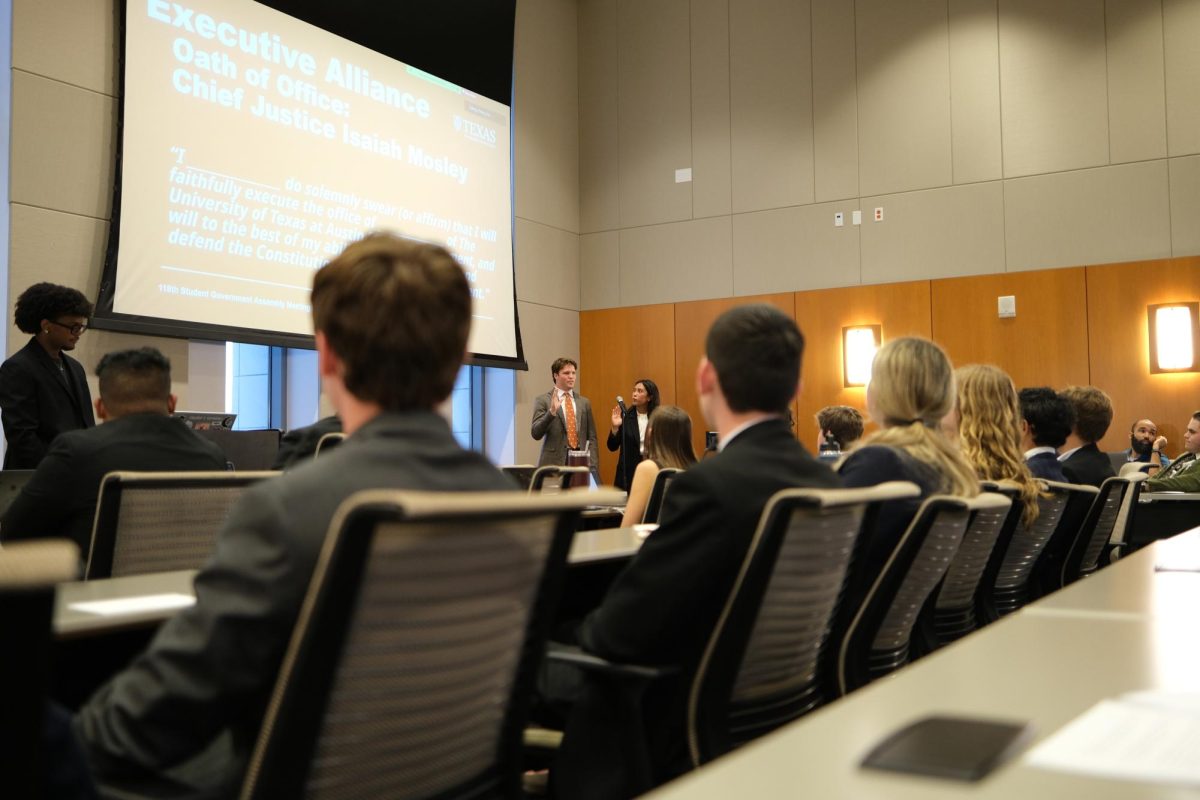Americans need to take more action to prevent abuse instead of just talking about a problem that impacts children around the country, said Jim Hmurovich, CEO and president of Prevent Child Abuse America.
The Kappa Delta sorority hosted a town hall meeting featuring Hmurovich at the SAC Ballroom on Thursday night. Hmurovich spoke about PCAA and its goal to create a national strategy against child abuse with the help of suggestions by university students and communities nationwide.
Hmurovich suggested students sign a pledge on the PCAA website for the development of a national prevention plan and to stand up for children when given the chance.
“We have a culture in this country that children are important but when we see something that isn’t good for their healthy development, we step back and point out that it’s not our child,” Hmurovich said. “We need to change that attitude because even though parents are the most important influence, we all have a role to play.”
According to a 2007 UNICEF Report, the United States ranked 20th out of 21 countries in a child well-being report of the wealthiest nations in the world. Hmurovich said this fact is one of the main reasons to create a national strategy.
“With the development of policies, strategies and mechanisms, every child can have an equal opportunity for healthy growth,” Hmurovich said.
In order to change the way child abuse issues are treated and to stop child abuse altogether, there must be cooperation for change in the relationships of the personal, community and societal levels, Hmurovich said.
Sabier Kim, public relations sophomore and chair for Kappa Delta, said she hopes students realize the severity of child abuse in America and how much students can do to bring awareness to the issue.
“[Hmurovich] inspired us to take action and work to prevent abuse from happening in the first place,” Kim said.
Public health freshman Emily Webb suggested that Hmurovich include a program in the national strategy that integrates guidance counselors into students’ lives.
“In my experience, unless you sought them out, counselors didn’t really have a relationship with you,” Webb said. “If there were a day where counselors went into the classroom to hold a workshop of some sort, students would feel more comfortable reaching out and talking to them,” Webb said.
Hmurovich said the students’ suggestions were practical and continue to shed light on what the main solutions for prevention of child abuse could be.
“The suggestions they offered could be done and it proves that it doesn’t just take government ruling but people caring about people to make a change,” Hmurovich said.



















